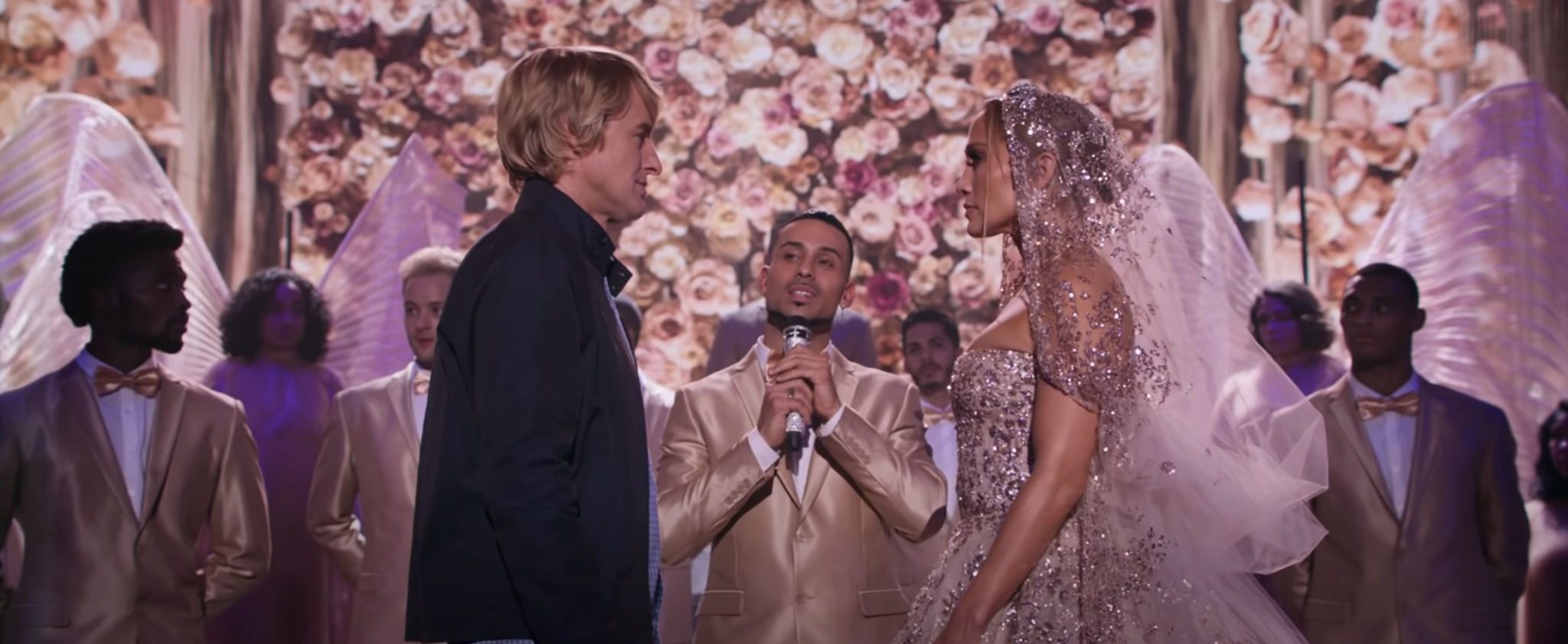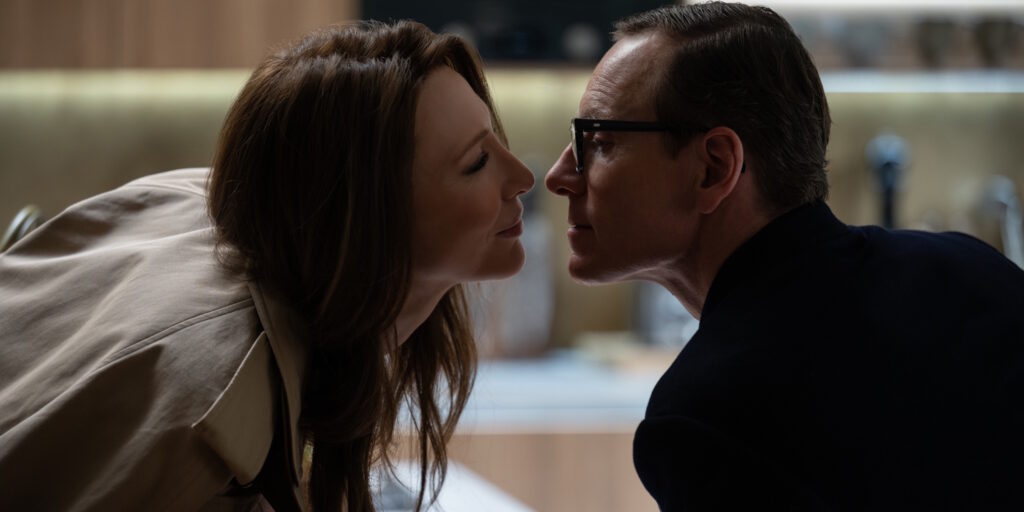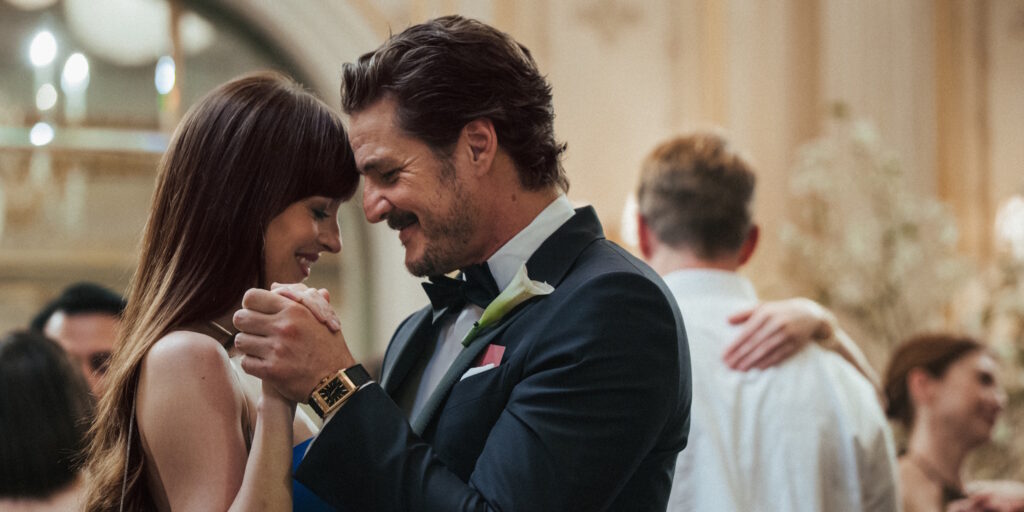[Originally published at Cinema St. Louis’ The Lens.]
Much like her fellow 2000s-era studio-comedy leading actor Adam Sandler, Jennifer Lopez received a generous and well-deserved dose of praise for a surprising turn in a 2019 crime drama. Her Uncut Gems came in the form of Hustlers, filmmaker Lorene Scafaria’s third (and undoubtedly her greatest) feature, which finally gave Lopez the role she was born to play: that of a genius criminal mastermind who moonlights as a stripper at a club frequented by Wall Street’s wealthiest. Not since Out of Sight (1999) had moviegoers seen Lopez deliver such a perfect performance. Naturally — also like Sandler post-Gems — the question of “What next?” lingered in the minds of many who saw and loved what they’d seen from the typically crowd-pleasing but rarely earth-shaking A-lister. For Lopez, the answer to that question is actually based on another question: Marry Me.
In this cinematic middle ground between J.Lo’s usual output and her occasional digressions, Marry Me begins with a whirlwind of entertainment-news footage and behind-the-scenes looks at pop-music sensation Kat Valdez (Lopez) and fiancé (and fellow superstar) Bastian (Maluma) as they prep for the biggest joint venture since their very public engagement: a concert-wedding hybrid in front of an arena of fans and a livestream of millions. Moments before their ceremony-performance is set to begin, Kat’s manager, Colin (John Bradley), catches wind of Bastian’s affair with an assistant. He drops this bombshell on Kat, and in a moment of shock-induced stupor, she steps out on stage anyway … and picks a man right out of the crowd to marry instead.
This man — Charlie (Owen Wilson), a boring single dad just hoping to convince his daughter, Lou (Chloe Coleman) ,that he can still have fun by taking her to the hottest ticket in town — goes with the flow, and in a matter of minutes, he’s married to one of the buzziest and most high-profile names in the industry. It’s a little reminiscent of Notting Hill (1999), in a way, but the difference is that there’s not really an attraction between Kat and Charlie. (At least not at first.) As is to be expected by any experienced rom-com viewer, feelings begin to develop between the two as publicity stunts and photo ops give way to meaningful discussions in car rides and quiet time spent at home.
Lopez and Wilson, both enormously charming and unquestionably talented when given an adequate script that suits them, have a lot of work to do in the first half of the film — not only are these characters strangers to one another, but they’re also polar opposites that fundamentally disagree on things like authenticity, social media, public versus private life, and the very nature of celebrity. Marry Me spins its wheels here for a while, failing to make any sort of significant progress toward the affecting or humorous. It’s not until all the extensive groundwork has been laid that Lopez and Wilson get a chance to show the viewers that this pairing might honestly work. As no newcomers to the genre, this is the easiest part for them — and the most enjoyable part for the viewer.
There’s not one moment where J.Lo feels out of place in her role as a Latin music icon, and as only her second musical film in more than 35 years as an actress (her first since 1997’s Selena), Marry Me will surely go down as one of her most memorable performances. Wilson, on the other hand, doesn’t always feel at home. From his work with Wes Anderson to his long list of Frat Pack collaborations, Wilson is not just some run-of-the-mill male lead for Lopez to bounce lines off of — he’s an icon in his own right, too. Alas, the part he’s been given by screenwriters John Rogers, Tami Sagher, and Harper Dill does not reflect this whatsoever. Anyone could have been standing in his spot, and he deserves a character as tailor-made to his sensibilities as Lopez.
Thankfully, as a must for any movie about pop stars or pop music, the songs in Marry Me are pretty catchy. Whether the title track “Marry Me,” the sensual extended metaphor that is “Church,” or the emotionally stirring “On My Way,” it’s always believable that any one of Kat’s songs could be hits — even outside the realm of fictionalized artists and charts featured in the film. This is thanks not only to Lopez’s talent as a performer but also to the slew of producers who worked on the soundtrack: Edgar Barrera, Tommy Brown, Leroy Clampitt, Danja, Keith Hetrick, and Michael Pollack, all of whom have been making the rounds with some of the most recognizable names in Top 40 for years now.
In the end, Marry Me isn’t here to save the rom-com, nor is it even capable of doing so. Filmed all the way back in the fall of 2019 and held over from its initial Valentine’s Day weekend 2021 release due to Covid concerns, this low-key, unflashy date-night movie isn’t trying to prove anything or make a point about this kind of film or its place in the ongoing conversation about what belongs in the multiplex and what belongs on streaming. Marry Me is simply here to provide you with something to look at for a not-totally-unpleasant couple of hours (and it’s both streaming and in theaters to boot). Its title might recall the ultimate commitment in a person’s life, but in truth, Marry Me isn’t that serious. It’s merely here to take up 102 minutes of your time — for better or for worse, to love and to cherish, till death or the end of the Peacock subscription, whichever comes first.
Marry Me is now playing in theaters and is also available to stream on Peacock Premium.




